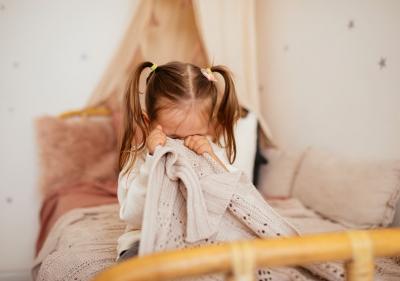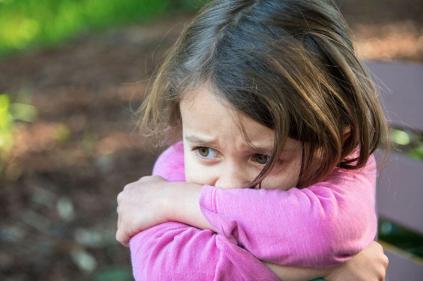“You need to leave the baby cry sometimes, picking him up as soon as he makes a sound is spoiling him.”
This is just one of the countless pieces of advice that we receive as parents, and it is advice that has been passed down for years.
The world (and it's mother) seem to be seriously concerned about ensuring that, God forbid, we don't 'spoil' our babies. And it's not just when it comes to leaving our babies cry - co-sleeping, on-demand-breastfeeding, and baby-wearing are all other supposed ways to 'spoil' a baby.
Attachment Parenting (or AP for short) is exactly what it sounds like - parenting through an attachment between the parent and the child. There is no specific set of rules per se, and it may differ slightly from one family to another but the principle remains the same - meeting a child's emotional and physical needs consistently, in a nurturing manner.
The idea is that through applying this method, the children will then trust that their caregivers will always be responsive to their needs, then, in turn, molding confident, secure and balanced children and future adults. Research has shown that children raised by responsive parents are far more confident and secure than those of unresponsive or inconsistent parents.
An experiment known as the 'Strange Situation' performed by Psychologist Mary Ainsworth in 1969 found that there were 3 main attachment styles, secure, insecure-resistant and insecure avoidant. Securely attached infants were upset in their parent's absence but quickly recovered when their parent returned showing that these infants were used to consistent responses from their parent in times of need. Insecure resistant infants were clingy, but resisted comfort from their parent and took longer to recover which showed that they were used to inconsistent responses from their parent in times of need. Insecure avoidant infants were not upset in their parent’s absence and did not look to their parent for comfort which showed that these infants were used to their parent being unresponsive in times of need.
When people hear 'Attachment Parenting', they picture a child stuck to their mother or father in every sense … this is not the case. Typically, it is most commonly associated with all or a combination of practices such as extended breastfeeding, co-sleeping, baby-wearing and positive discipline.
The word attachment refers to an emotional bond. It is your responsiveness to your child's cues that is most important. When your child is hungry, thirsty, tired, hurt, happy or scared, you are there. You don't have to be a stay at home parent, breastfeed or babywear to be an attachment parent - you just need to respond!
We all want what's best for our children.
We all want our children to feel loved. We all want our children to grow into confident and happy adults. We live in an age where anxiety disorders and mental health problems are at an all-time high and, although there are no largescale studies connecting this increase back to infancy, it would seem to make a lot of sense. We are living in the age of convenience, schedules and plans, and unsurprisingly, parenting appears to be going that way too. Our babies were not designed to fit into schedules and babies aren't here for our convenience. Far too many 'experts' claim to have the answer for all things pertaining to babies. They tell us how to make our baby sleep through the night when - here’s a fun fact, every child is different and every child will sleep through the night in their own time. Have you ever met an adult who didn't sleep through the night?
The reality is this - our babies are exactly what the name implies - babies! They are not capable of 'playing us.' Babies do not wake in the night to control us, they do not cry to manipulate us. A child’s needs extend so much further than being rested, fed and changed. Babies need to be held, they need comfort, they need eye contact and most importantly they need love.
Research performed by Dr. Allan Schore of the UCLA School of Medicine found that the sensitivity and responsiveness of a parent stimulates and shapes the nerve connections in key sections of the brain which are responsible for attachment and emotional well-being. The stress hormone, cortisol (which floods the brain during intense crying and other stressful events) actually destroys nerve connections in vital portions of an infant’s developing brain. When the portions of the brain responsible for attachment and emotional control are not stimulated, these sections of the brain will not develop, resulting in an impulsive, emotionally unattached and often easily angered child.
Recently I was talking to an old friend who asked me what Attachment Parenting was. I was describing it to her, when she stopped me and said, 'I couldn't put up with being a slave to my kids, it can't just be a free for all.’ Attachment Parenting does not mean your children are in control and call all the shots. You set compassionate boundaries for your children. The rules I set are fair for both me and them and when the boundaries are crossed, I explain it to them and reassert the boundary and move on from it. No slapping and no screaming. I don't expect too much from them and they don't expect too much from me. That is how we work.
When it comes to juggling children and keeping a house running, I involve them in the things I can involve them in. If I'm putting on a load of laundry I let them help. Who really cares if the socks go into the machine one at a time? When there are things that I can't include them in, like cooking, I will explain what I'm doing, give them an activity and talk to them while I do what I need to do. Beyond that, if your house is untidy, if the laundry isn't done or the dinner is a half hour late, that is okay - you need to be kind to yourself too.
Having children is harder now than it ever was. There is always somebody who claims to know better, ready to jump in and tell you what they think you are doing wrong and all the things that you should be doing. In a lot of ways, we as parents, need to go right back to basics and start listening to our guts and natural instincts. Our natural instinct when a child cries is to comfort them and the reason so many of us follow strategies such as 'cry it out' is because somebody told us to or because of what the 'experts' say, not because it feels right or natural.
Our children are small for such a short space of time. My eldest is six and those six years have gone in a flash. I would give anything to go back to when he was a baby and hold his little body close to my heart. We need to savour each and every moment with them – the days may seem long but the years are short. All too quickly they're all grown up and we look back at pictures wishing we could give the babies they used to be a hug just one more time.










